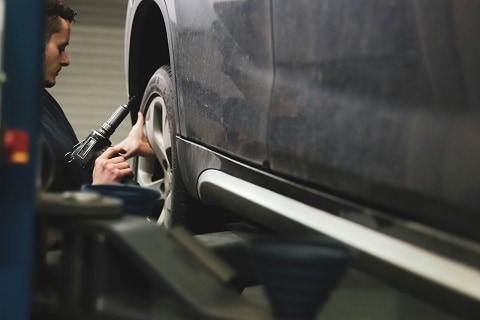â
Vehicle recalls are a crucial part of automotive safety. They happen when a car maker or the National Highway Traffic Safety Administration (NHTSA) finds a safety problem in a vehicle. The goal is simple: to fix issues that could harm you, your passengers, or others on the road. Below, we'll outline what you should do if there's a recall issued on one of your vehicles.
What Is a Recall on a Car?
Recalls can cover a wide range of problems. Sometimes, it's a small thing, such as a label that's hard to read. Other times, it's a big deal that could cause crashes or injuries. No matter the size of the issue, recalls are always about keeping people safe.
Car companies spot problems in different ways. They might get lots of complaints from customers, or they could see a pattern in accident reports. Sometimes, they find issues during their tests. When they find a problem, they have to tell the NHTSA, car owners, and dealerships about it.
After that, the carmaker comes up with a plan to fix the problem. This usually means repairing or replacing parts or updating software. The best part is that fixing your car is free.
Identifying if Your Vehicle Is Affected
If you're wondering if your car is subject to a recall, there are a few easy ways to check. Using your car's vehicle identification number (VIN) is the simplest. This is a 17-character code that's unique to your car. You can find it on the driver's side dashboard or door frame.
Once you have your VIN, you can check for recalls in several places:
- The car maker's website
- The NHTSA's recall lookup tool
- By signing up for recall alerts from the NHTSA or your car's maker
- Using our Mopar Recall tool
Car companies have to send recall notices by first-class mail, but some also use email, phone calls, or text messages to make sure you're informed.
Steps To Take After Receiving a Recall Notice
If you get a recall notice, don't panic, but don't ignore it either. Here's what you should do:
- Read the notice carefully. Make sure you understand what the problem is and how serious it might be.
- Call your local dealership. They can schedule a time to fix your car.
- Keep all the paperwork about the recall and the repair. You might need it later.
- Follow any safety instructions in the notice. Sometimes, you might need to do something before you can get the car fixed.
- Act quickly, especially if it's a serious safety issue.
When you call the dealership, give them your VIN and tell them about the recall notice. They'll set up an appointment that works for you. If the repair will take a long time, ask if they can lend you a car to use.
On the day of your appointment, bring the recall notice and your car registration. The dealership will check your car and do the needed repairs or replacements. Depending on what needs to be done, you might have to leave your car for a few hours or even a few days.
Are Recall Repairs Free?
The law says a carmaker has to be the one who pays for recall repairs. This means that safety recall repairs are always free to you. This includes parts, labor, and even moving the car if needed. There are a few things to keep in mind:
- Cars older than 10 years might have different rules.
- If you've added aftermarket parts or changed your car, it might affect whether you can get the free repair.
- Recalls in other countries might work differently.
Sometimes, car makers have service campaigns for things that aren't safety issues. These might not always be free. But if it's a safety recall, you won't have to pay a cent.
Do Recalls on Vehicles Expire?
Safety recalls don't have an expiration date. Even if your car is old, the maker still has to fix the problem for free. But recalls for things that aren't safety issues might have time limits.
It's best to get recall repairs done as soon as you can. This keeps you and others safe on the road. Plus, it's easier to get the repair done right away than to wait and maybe forget about it.
Additional Important Information
Vehicle recalls are more common than you might think. In 2023, over 21 million vehicles in the U.S. were recalled due to 635 separate issues. If you're buying a used car, it's smart to check for any open recalls. You can fix these even on older cars. Keep records of all recall repairs. This helps if you ever sell the car.
It's legal to sell a used car with an open recall, but it's not a good idea. Dealers can't sell new cars with open recalls. Some states make sellers tell buyers about open recalls on used cars.
Unfixed recalls can lower your car's value when you sell it. Some insurance companies might look at open recalls when deciding on your coverage or rates.
Finally, if you're dealing with recalls outside the U.S., check with local car authorities. Rules can be different in other countries.
Stay Safe With Huffines Chrysler Jeep Dodge Ram Plano
We care about your safety at Huffines Chrysler Jeep Dodge Ram in Plano, Texas. If you've received a recall notice for your vehicle, our service team is here to help. We'll ensure your recall repair is done right, keeping you and your family safe.
Don't wait to address a recall. Schedule a service appointment with us today. Our expert technicians will take care of your recall repair quickly and professionally at no cost to you. Your safety is our top priority. To learn more about any open recalls on your vehicle or the repair process, please contact us today.